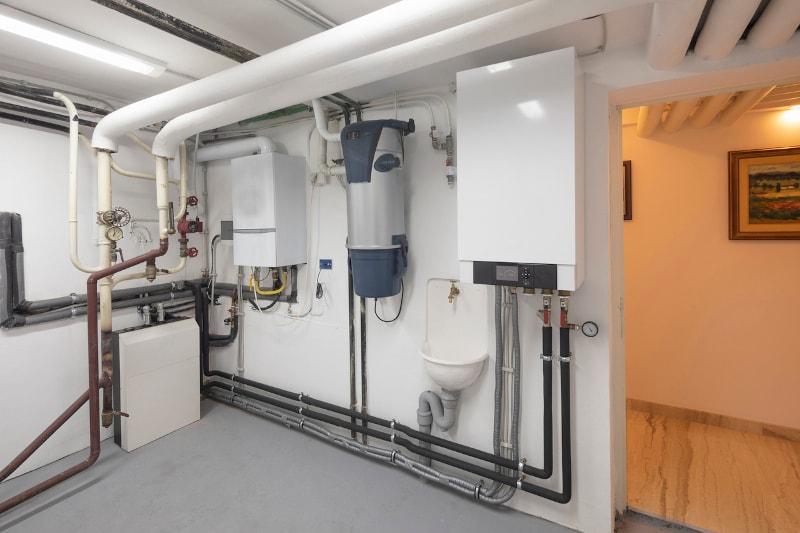Determining the right heating system for your Dover, DE home is challenging, especially with all of the options available. Rather than focusing on installation cost alone, there are many differences to consider between heat pumps and furnaces. Consider these seven significant differences as you explore the best heating option for your home.
1. How They Heat Your Home
The first thing to notice is that the method furnaces and heat pumps use to produce heat is completely different. A furnace will produce heat by either burning fuel or using electricity to create heat through a resistance coil. On the other hand, a heat pump absorbs heat and transfers it from one place to another.
For standard-efficiency furnaces, this means they’ll produce a lot of heat in the 10 to 15-minute cycle. It’ll then shut off until the air cools enough to trigger another heating cycle. Conversely, a heat pump will run longer cycles but tends to heat your home evenly, especially if it’s a high-efficiency model.
2. Heating Efficiency
Furnaces and heat pumps use completely different measures of efficiency. Furnaces use Annualized Fuel Utilization Efficiency, or AFUE, which considers how much heat escapes with the exhaust. Fuel-burning furnace efficiency ranges from about 80% to just over 98%, electric models are 100% efficient with no exhaust.
Heat pumps use the Heating Seasonal Performance Factor, or HSPF, to measure efficiency. This essentially looks at the total heating output for the season compared to the total energy consumed. As of 2023, the industry has moved to HSPF2, with 7.5 being the minimum rating to remain compliant.
3. Cost of Heating
Efficiency doesn’t tell the entire story of what you’ll experience using these heating units. Under ideal conditions of moderate temperatures, heat pumps will always run more efficiently than furnaces. Once temperatures drop into the frigid range, heat pumps tend to lose that efficiency quickly.
This is why many homeowners who want the benefit of heat pumps will opt for a dual-fuel system. This has a heat pump to use during moderate temperatures, but a gas furnace as the auxiliary heating. Pairing the two systems together ensures that you’ll always have the most cost-effective heating option.
4. Heating Safety
Every form of heating has inherent risks, so evaluating them is a matter of understanding those risks. Heat pumps have a large power draw, so there are electrical safety risks associated with running one of these units. There’s also the risk associated with an indoor refrigerant leak, which is usually more annoying than dangerous.
Furnaces, on the other hand, have several significant risks. The obvious is the risk of a fuel leak, which creates a fire and explosion hazard. However, furnaces also produce carbon monoxide and so bring the risk of exposure, which is potentially life-threatening.
5. Installation Costs
Gas furnace installation is generally less expensive than a heat pump, as long as you already have gas service. Natural gas furnaces tend to run between about $3,000-$9,500 for the unit and installation. Heat pumps generally cost $6,500 or more, depending on several factors.
6. Single Versus Multi-Season Use
When considering the installation cost, be sure you’re factoring in how you’ll use it. Furnaces are only used for the cold weather, so you’ll need an air conditioner for the summer. Conversely, heat pumps double as both your heating and cooling system, so you are only installing one system.
7. Service Life
When properly maintained, a gas furnace will have a longer service life, typically offering 15 to 20 years. Heat pumps have a similar service life to air conditioners, typically lasting 10 to 15 years before needing a replacement. Both units may have individually longer service lives, but these are the expected averages before efficiency begins waning.
It’s challenging to remember and factor in all the variables that influence the best heating system for your home. Call to schedule a consultation with one of our heating system experts at Griffith Energy Services.
Image provided by iStock




